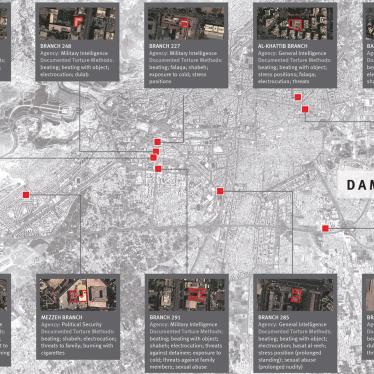Human Rights Watch said today that the arrest of Augusto Pinochet represented a permanent advance in the cause of human rights, despite the fact that a British medical evaluation may prevent Gen. Pinochet's extradition to Spain. "It's a terrible disappointment for Pinochet's thousands of victims that he may never have to face trial in Spain," said Reed Brody, Advocacy Director of Human Rights Watch. "But the very fact that he was arrested, and that his crimes were enumerated in a court of law, has already changed the calculus of dictators around the world. The Pinochet case signified the beginning of the end of their impunity."
The Pinochet case helped to establish the principle that grave human rights crimes are subject to "universal jurisdiction" and can be prosecuted anywhere in the world. The British government's decision to arrest Pinochet, and then to commence extradition proceedings, solidified the idea that torture and "disappearances" committed in Chile are also crimes in Great Britain. Two rulings by the House of Lords found that Pinochet was not immune from prosecution even though he was head of state at the time the crimes were committed.
"The Pinochet precedent is already transforming international human rights law," said Brody. "I'm sorry the general probably won't be going to prison. But overall, his case still represents a tremendous victory for human rights."
Brody noted that Pinochet's October 1998 arrest opened up new political freedoms in Chile, where the former dictator held the position of "senator for life" and was continuing to exert a chilling influence on Chilean political life. He expressed the hope that if Pinochet is not extradited to Spain, he should also not be allowed to return to Chile to try and re-establish his influence there.
"If he's too sick to stand trial, he's too sick to be a senator," said Brody.
Brody said that Human Rights Watch would urge British Home Secretary Jack Straw to apply appropriate standards in deciding to extradite Pinochet. "Being a sick old man does not make someone unfit to stand trial," said Brody. "If Pinochet is genuinely unable to participate in his own defense, then extraditing him would not serve the cause of justice."





